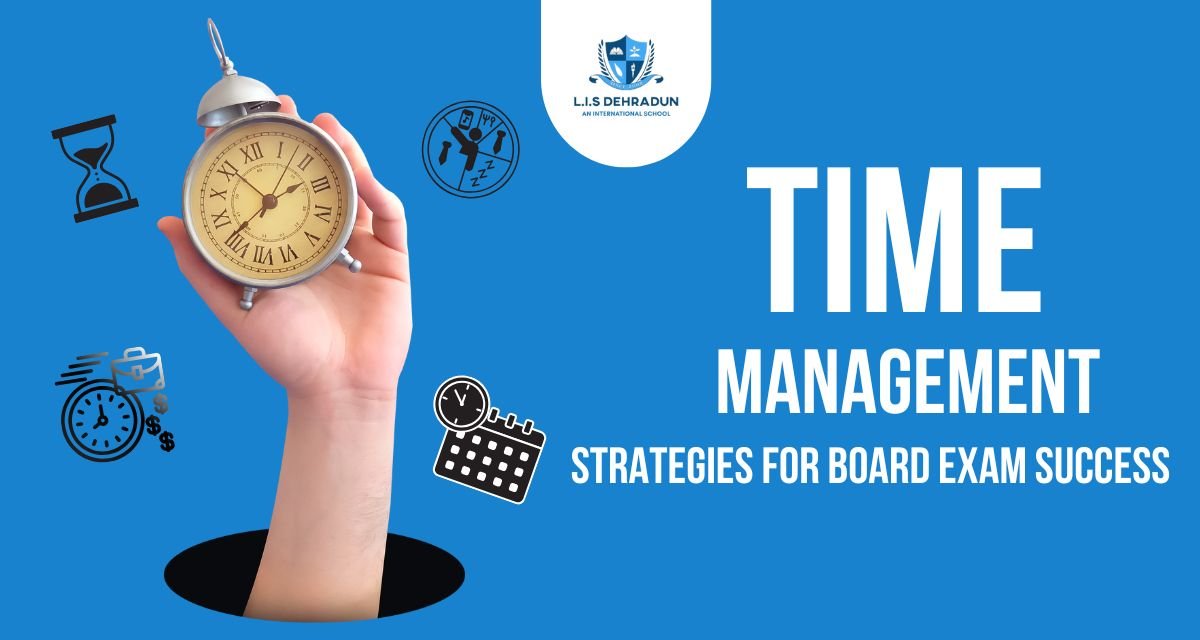Time Management Strategies for Board Exam Success
Students face considerable challenges when it comes to preparing for their board examinations. The need to deliver strong results along with a wide range of subjects to study makes proper time management essential. Effective time management for board exams ensures that students can allocate sufficient hours to each subject, revise thoroughly, and avoid last-minute stress. Those marks from long essays and theoretical questions matter because ranking well in examinations has become crucial in today’s educational landscape. Students need to focus on preparation since it remains the key element during exam times. They should understand the important points that follow.
The following post delivers both time management approaches as well as study tips for board exams that improve effectiveness before exams.
Students must recognize the significance of time management during their board exam period
Time management during board exams requires more than scheduled study periods because students must use each moment effectively. Proper time management for board exams enables students to achieve the following outcomes:
- Reduce Stress: A well-structured study plan reduces stress by eliminating stressful situations that lead to anxiety.
- Enhance Productivity: Students achieve higher productivity through their ability to sort important work tasks and establish specific learning targets.
- Improve Retention: Retaining information becomes simpler during tests because dividing study time over multiple periods improves memory storage.
Study Tips for Board Exams
1. Create a Study Schedule
Designing a thorough study timetable stands as an extremely powerful practice for success in board examinations. Conduct a syllabus analysis to divide subjects into smaller portions while assigning timed periods for each academic unit.
- Identify Key Topics: You should first list all subjects together with their topics. Pay special attention to topics that need more work.
- Set Realistic Goals: Establish practical daily study targets that let you finish each subject and allow enough time for learning.
- Include Breaks: Plan brief intervals to enable your mind to rest. Working in 50-minute study sessions followed by 10-minute intermissions works best.
2. Prioritize Your Tasks
Every academic subject has a unique value when it comes to study priorities. Research shows that different subject requirements demand varying levels of time investment and activity duration. Prioritize your tasks based on:
- Difficulty Level: Start your study routine by focusing on the subject that you find most challenging.
- Exam Weightage: Prioritize subjects that carry substantial weight in board examinations.
3. Use Active Learning Techniques
Active learning strategies lead to better understanding and improved information retention. These study approaches should be included in your study protocol:
- Practice Tests: You should regularly complete practice tests both for assessment purposes and to pinpoint areas where you need improvement.
- Group Study: Studying with classmates gives you access to fresh perspectives and allows for a better understanding of your subjects.
- Teach Back: Your understanding will improve when you explain concepts to another person. Through this method, you confirm your knowledge while recognizing any missing information.
How to Manage Time During Board Exams?
Time management for board exams becomes crucial after completing the preparation period when students enter board exam sessions. You can manage the exam hall effectively with the following strategies:
1. Read the Question Paper Carefully
Your first few minutes should be dedicated to reviewing the entire question document before beginning work. This will help you:
- Begin with questions that are easiest to answer because they will help you develop your confidence.
- Determine your time limits for different sections by considering both the number of questions and their provided marks weightage.
2. Time Allocation
Divide your exam time according to the marks distribution. For example, if you have a three-hour exam with 100 marks, aim to spend approximately 1.5 minutes per mark. Keep track of time as you progress through the exam.
3. Stay Calm and Focused
Exam-related anxiety will negatively impact how well you handle time during the exam period. Deep breathing techniques together with visualization practice both help to manage your calmness before and during the examination.
4. Review Your Answers
Devote your final 10-15 minutes to double-check your answers whenever possible. Review your answers while searching for possible mistakes or overlooked questions in order to achieve maximum points.
Conclusion
Learning to manage your time properly during board examinations creates substantial effects on your examination results. These study techniques combined with scheduled management throughout board examinations will boost your chances of success. Your success depends on beginning early while staying organized with a positive outlook throughout the process.
LIS Dehradun provides students with structured guidance combined with expert mentoring and a disciplined learning environment that drives academic excellence. LIS teaches students essential time management methods that lead them toward success in board examinations and also in their future academic pursuits. Explore LIS Dehradun to understand our dedication to helping students reach their educational objectives.




